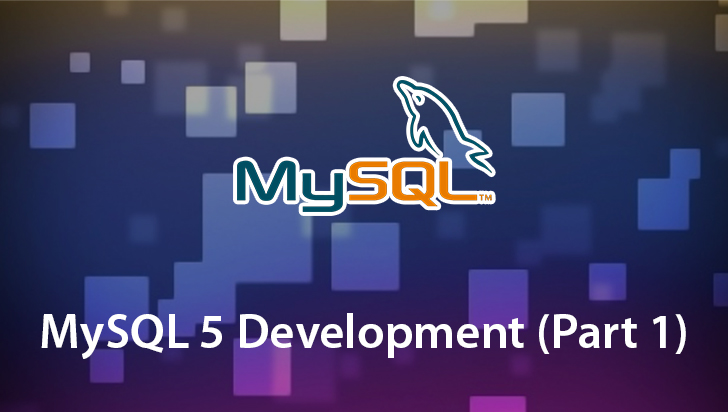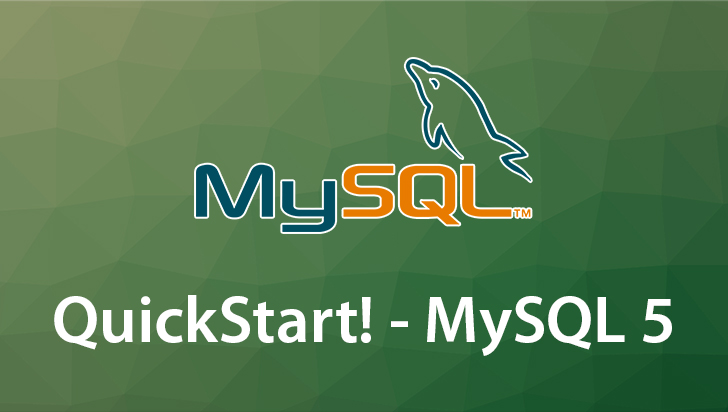MySQL 5 Development (Part 2) Course
This Course can only be played using a subscription. You can play only first 3 chapters for free. Click Here to avail a subscription
This MySQL 5 Development Part 2 course continues the introduction to MySQL we began with Part 1. But in Part 2, we now begin working with commands that are used to change the contents of the tables in our database. We also explore various ways of building more complex queries, including command options that allow us to address more than one table in a single command. While this is still an introductory course, we are now exploring tools that let us handle more complex operations and build more sophistication into our MySQL database systems. The topics we cover in Part 2 include inserting/updating/deleting data, subqueries, joins, transactions, table and row locking, stored procedures and functions, triggers and events, indexes, and more. We have tried to keep the examples in the lessons as simple as possible to illustrate them most effectively, but the further study exercises are more realistic as to how these tools are used in practice. To begin learning today, simply click on the movie links.
Welcome to Virtual Training Company's course on MySQL 5 Development Part 2. My name is David Swain and I will be your guide as you learn more and more interesting details and techniques in using MySQL 5 to develop databases using this very popular tool. So you may have heard from me before and hopefully you have, because this is a continuation of Part 1 of this same course and we're assuming that most people have gone through all of that, but just to review very briefly. Part one was the foundation, we covered a lot of set up information and a lot of background information and some simple querying kinds of things. Now in Part 2 we are going to add much more complexity. So we're assuming that the way that you set things up on your computer for Part 1 is still in place and we're going to add a lot of other things to it. We want to make sure that you still have the world database installed and the reason I'm using that database, some people wanted to know, is that this is the database that many of the questions on the official MySQL certification exam is based. So if you want to do well on that certification exam, then becoming familiar with this database and knowing how to manipulate it and understanding some of the techniques that we use along with it, then the specific queries that we do along with it, will help you to do well on that exam. We also want to make sure that you're using the configuration that we talked about last time, but in this course, we're going to go over that configuration again, but then explain why we set up some of these things the way that we did. So that's going to be some off what we cover in the early chapters of Part 2 here. We're also going to be adding other databases and other tables and learning about and creating new database objects, like views and triggers and stored procedures and that kind of thing. So there are going to be a lot of new things that we cover in this course. We're also going to give you more realistic exercises now that we're beginning to approach real world complexity, as we get further into this part two of the course, then the things that we do for exercises outside of the lessons that I provide for you, are going to be again, more realistic and probably more interesting for you as well. So I've mentioned before that what we're covering here and the reason that we split Part 2 off from Part 1, since it was too a bigger course to do in just one course for VTC, that we're going to be dealing with a lot of dangerous MySQL Commands. So let me explain myself a little bit about that. We're working with commands here for the most part, that can potentially change the contents of our tables in our databases and the thing that makes that dangerous is that we don't have an undo for these commands. So we want to make sure that we do them right the first time, especially if they're going to be done in kind of an automated process, generated by an application on the frontend or being performed by individual people with some knowledge and perhaps some very little knowledge of SQL Commands themselves. So we want to make sure that we've got the database so that it can reject certain things that are really bad, but also we want to make sure that our commands are going to be performed correctly, so that we don't have to go in and massage the data around again, after the command has been carried out. So we're going to include not only, information about commands that can change table contents, but also we're going to do more complex querying and querying that is complex enough, that if we don't cast the query correctly, we may in fact not get the answer that we were looking for. So I want you to understand how to work with these more complex structures and more complex syntax's so that you can get the answer that you're looking for from the database, that's very important. These are still introductory level topics though. Some of them might be bordering on the intermediate level, but they're all basic things that we need to understand if we're going to do the normal database development tasks that people will call upon us to do. So the job that you do here or working on your own application for your own business, these are basic things that you're going to need to understand in order to be able to get good use out of the database software. The full course, then, covers also those basic topics that you have to understand in order to pass the MySQL 5.0 certification exam, the official certification exam put out by the company. And so I want to prepare you for that as well. There are in fact two exams needed for this certification, so we haven't split our course materials up into what is covered in Part 1 exam and the Part 2 exam. Our part ones and part twos are entirely different from that. I'm giving things in a different order than, than they test for. On the other hand, the combination of what we cover in these two courses should help you and serve you well in taking and passing those certification exams and certification is something that you really could use to get jobs working for companies that use MySQL or to just further your career in other ways. So we're going to go on now and talk about what is going to be covered in this course, the Part 2 course of MySQL 5 Development.
- Course: MySQL 5 Development (Part 2)
- Author: David Swain
- SKU: 34278
- ISBN: 978-1-61866-021-3
- Work Files: Yes
- Captions: No
- Subject: Databases
- The first 3 chapters of courses are available to play for FREE (first chapter only for QuickStart! and MasterClass! courses). Just click on the movie link to play a lesson.


